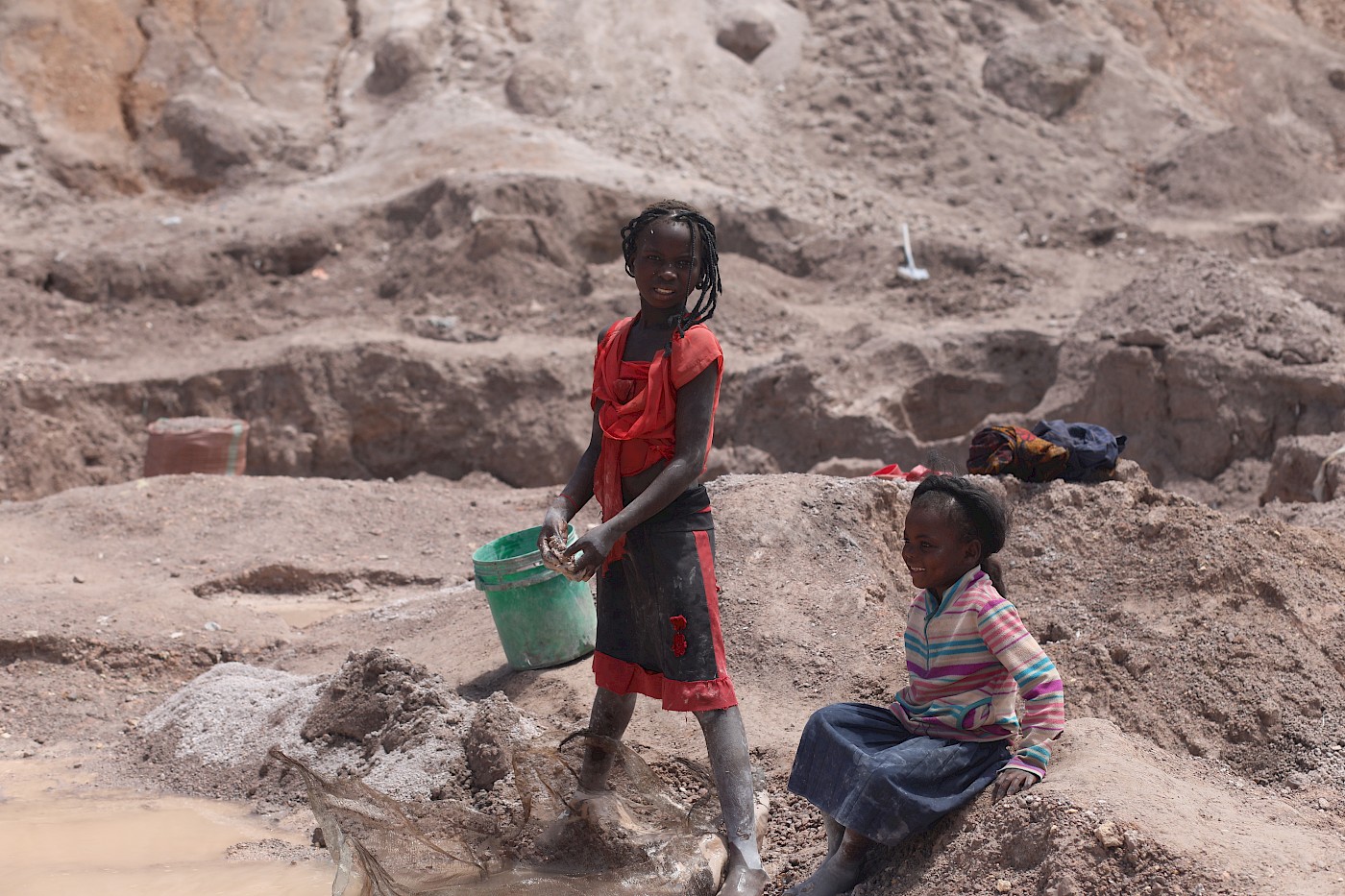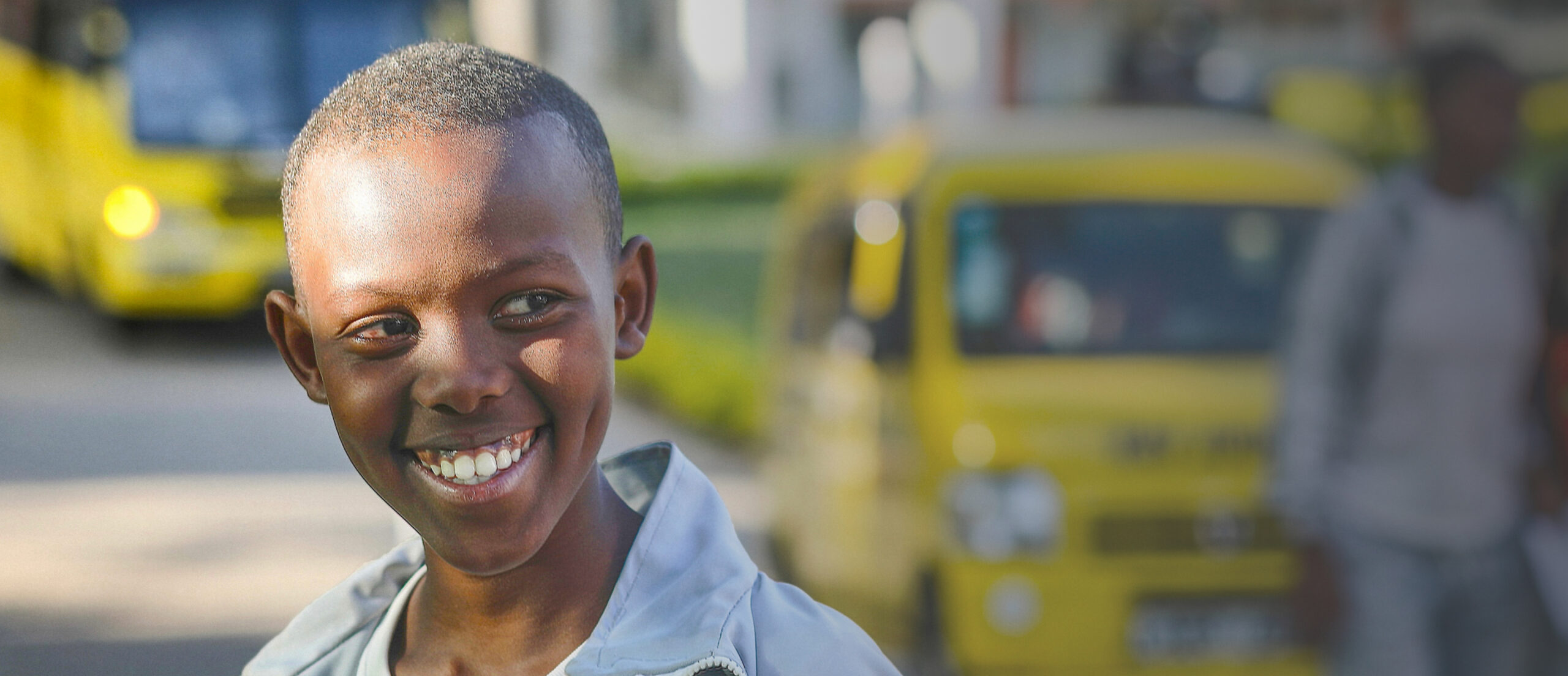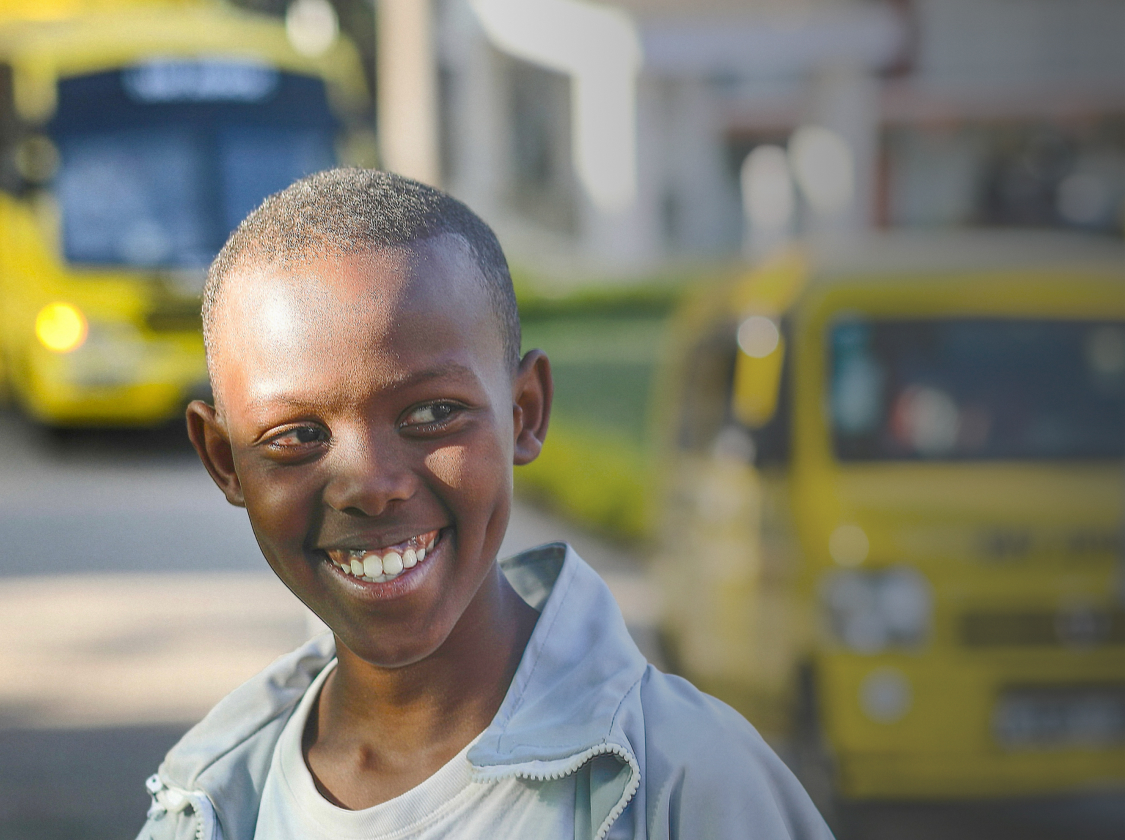T.T. Nita worked in the mines of the Democratic Republic of Congo for seventeen years. Two of her daughters worked with her for some time, in a dangerous and extremely hostile environment for women. Today, T.T. Nita says she gave up working in the mines thanks to Still I Rise, which gave her daughter Francine the opportunity to study for free and, every month, delivers food kits to her and her family.
Below is her testimony, as part of the initiative “Through Our Voices”, a project created by advocacy Still I Rise to unveil what is happening in the countries where we operate through the voices of our students and their families. The first chapter of “Through Our Voices” focuses on working conditions in the mines (read also: D.R. Congo, voices from the Mutoshi mine: “We risk our lives for 10 dollars per day”).
“I am a mother of a family consisting of me, my husband, and 11 children, including 6 girls and 5 boys. I am originally from the Dilolo region, Lualaba Province, in the Democratic Republic of the Congo, but currently, we live in Kolwezi. I didn’t have the opportunity to receive an education as my parents couldn’t afford it, and I only completed the third grade.
I worked in the mines for a long time, from 2006 to 2023, performing tasks such as digging and washing minerals.
I worked in the Ngonga, Sable, Kandimba quarries, and most recently in the Eau Verte mine. Basically, I worked everywhere! I would climb the hill to dig up the earth, transport it by bicycle to the washing and cleaning site. After washing, I would sort the minerals and store them at home. Once I collected a sufficient amount, I would go to the sales counter to sell them.
I worked with my two daughters, forming a team of three, and we were not organized as a cooperative but as artisanal miners.
The price of minerals also depends on how you wash your minerals. If your minerals are clean, their value increases, and you are paid more. If you are lucky, with a 100 kg bag, they could pay you 280,000 FC (112 USD). When we sold all the minerals, we could earn together over 600,000 to 800,000 FC (240 to 320 USD) in a week. However, transportation expenses needed to be deducted, leaving us with about 500,000 to 600,000 FC (200 to 240 USD).
Women should not be working in the mines. Not only do the miners lack respect for us, but we often find ourselves in dangerous situations.
Sometimes, even in the presence of children, the miners behave rudely, using insults and vulgar language, sometimes referring to intimate parts of the body. Miners act like criminals. To work there, it’s essential to plug your ears and focus on the job.
It is not a suitable place for women. We use picks, shovels, hoes, and dig until we find the green soil that contains minerals. Additionally, we women do not dig tunnels but pits. We start digging the pits guided solely by our faith because we do not have tools to know if there are minerals where we are digging.
Sometimes, we take a small soil sample and wash it to see if it contains minerals. In the mine, there are many diseases, and there is no medical support, so I take care of myself.
I no longer feel well in my chest, and when I cough, it feels like I have sores inside, and sometimes my nostrils hurt. This pain is caused by the dust. The body is tired; I no longer feel fit to do this work; imagine, I’ve been doing it for 17 years.
Recently, I realized that my age no longer allows me to continue working in the mines. I made this decision just when my daughter joined Still I Rise School.
But not working is not an option, so I decided to open a small restaurant near the sand mine. I consider this work a side job, and I do it with my children. Every morning, I go to the main market to buy groceries, which I cook to serve passersby and customers. I also sell drinks like juice and water.
Most of my customers are miners and those who extract sand for construction.
There are children still working in the mine; some of them come to eat at my restaurant. I see them coming from the Kilimabunga hill on bicycles, carrying sacks of minerals on their heads. Child labor is not good at all; children under 18 should go to school. Poverty drives them to work.
Still I Rise is an extraordinary school where my daughter has the opportunity to study for free. The organization supports the children of Kolwezi, and my heart is filled with joy because of their presence. I wonder where they have been all this time.
What I like the most is the humanity, generosity, unity, and frankness that characterize the people of Still I Rise. There is no discrimination at the school; they treat all parents the same way. Even our children testify that in your school, all children are equal.
I left mining activities thanks to Still I Rise. The organization delivers food kits to us every month, so I no longer worry.
It was hunger that drove me to work in the mines, but now that Still I Rise delivers food kits, I have no reason to go to the mines. I left that sector.
Still I Rise told me to stop, not to return to the mines, so I did, and I am happy. My duty now is to ensure that my daughter goes to school, wakes up in the morning, and studies. Unfortunately, my other children do not study; they still work in the mines, although they are under 18.
I want my daughter to continue her studies, complete them to lift her family out of poverty and become a strong and accomplished woman.”
What can you do?
Join the “No more child miners in DRC!” campaign and sign the petition!
Join the Still I Rise Big Family and donate now!


